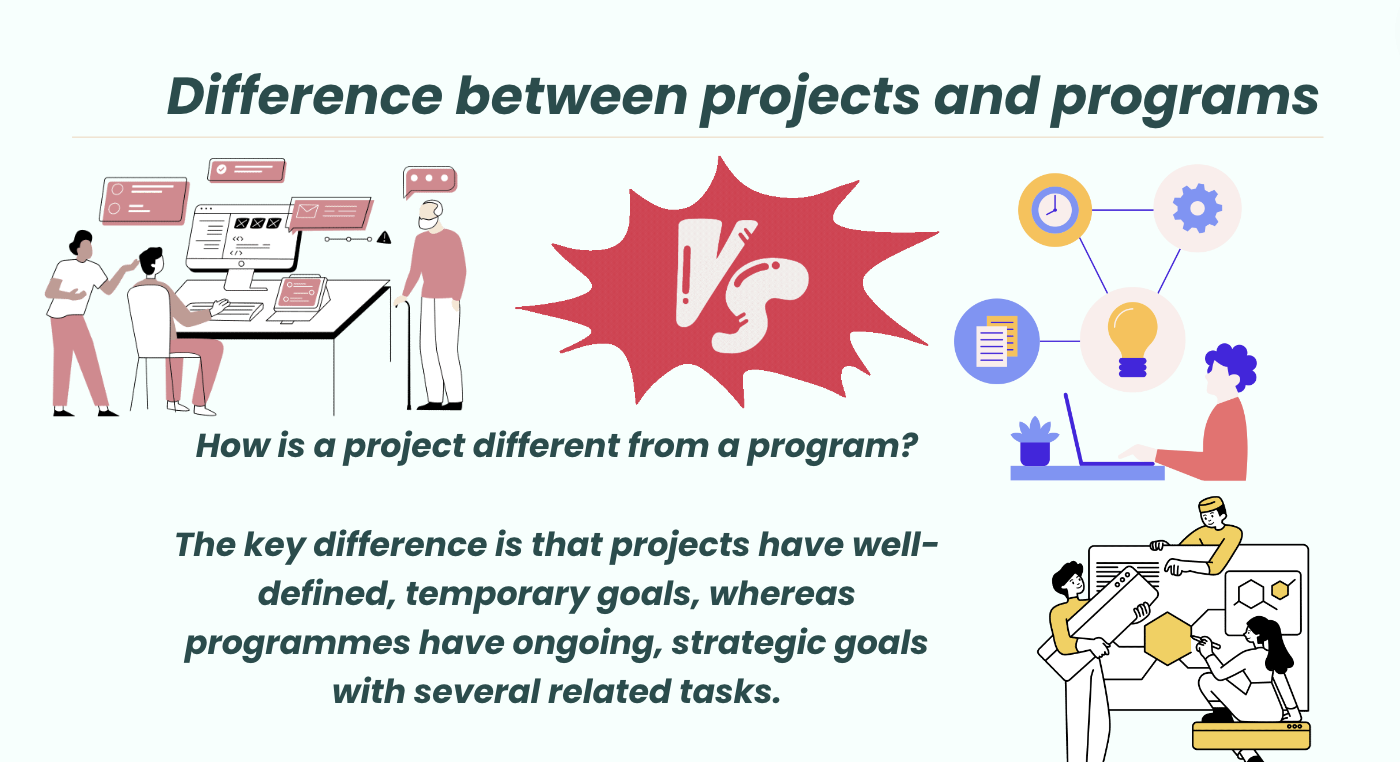In this article we will see the Difference Between Projects and Programs.These two terms frequently appear in the fields of project management and organisational strategy: projects and programs. While these words may sound similar, they signify different methods of meeting goals and producing results.
Understanding the underlying differences between projects and programs is critical for efficient organisational management, resource allocation, and goal achievement. In this article, we’ll deconstruct this terminology and shed light on the major distinctions that separate projects and programmes.
How is a project different from a program? Support your discussion with an example.
Project: A temporary organisation that is created for the purpose of delivering one or more business products according to a specified business case. Projects have an end and aren’t designed to last very long. The project manager ensures the project delivers the intended goal, within a defined timeframe and budget.
Programme: A programme is defined as a group of related projects managed in a coordinated way to obtain benefits and control not available from managing them individually. Programmes are usually long term sometimes spanning years and don’t have a fixed deadline. A programme is a framework of related projects aligned in a specific sequence.
They have predictable and repeatable elements to minimise or even eliminate risks. Example: Let’s say a company wants to build and market a new mobile phone. This programme would be a collection of different projects like one for updating the operating system and another for sourcing the resources and raw materials along with the legal business and support elements. Programme management would manage the dependencies, so each project gets what it needs.
Some Fundamental Difference Between Projects and Programs
The Table below shows the major difference between projects and programs:
| Aspect | Project | Program |
| Duration | Projects are of shorter duration. | Programs are generally of longer duration and consist of multiple projects. |
| Focus | Projects focus on desired results or outputs. | Programs focus on desired outcomes or benefits. |
| Measurement | Project success is measured by metrics like budget, schedule, quality, etc. | Program success is measured based on benefits realization. |
| Objectives | Projects fulfill specific project objectives. | Programs generally focus on generating organizational benefits. |
| Scope Management | Project scope is defined and may evolve iteratively. | Program scope encompasses the scope of the collection of projects. |
| Change Management | Project managers expect change and implement processes to manage it. | Program managers accept and adapt to change to optimize benefits delivery. |
| Success Criteria | Project success is measured by product and project quality, timeliness, budget compliance, and customer satisfaction. | Program success is measured by the program’s ability to deliver intended benefits to the organization. |
FAQs
How is a project different from a program?
The key difference is that projects have well-defined, temporary goals, whereas programmes have ongoing, strategic goals with several related tasks.
Why is it important to understand the difference between projects and programs?
Understanding these differences is critical for efficient project and programme management, resource allocation, and accomplishing organisational strategic goals.
What are the 3 types of projects?
There are three types of projects are Strategic Projects, Operational Projects, and Compliance Projects

